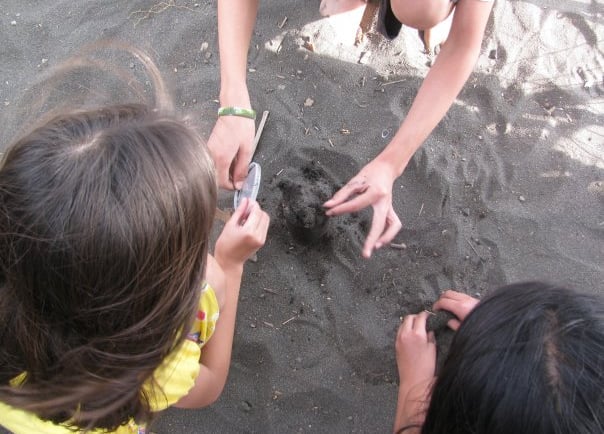Why Write For Children Now
RITEMEPAGE A WRITER WORKSHOP


Why I Will Write Children’s Books (and Why You Might Want to Join Me)
Let me tell you something that might surprise you.
When I was growing up, I didn’t have access to children’s books. Not one.
There were no picture books in our house. No bedtime stories. No colorful shelves with titles meant just for me. I didn’t even know such a thing existed. My introduction to children’s literature came much later—when I stumbled upon The Little Prince in high school. I only picked it up because there was a child on the cover. I thought it was for kids.
Of course, The Little Prince wasn’t really for children. But it made me feel something no textbook ever did. And that was enough to spark a lifelong love for stories.
Why Write for Children Now?
I plan to write children’s books now not because I had them growing up—but because I didn’t. Many of us grew up thinking reading was something functional, something for school. We didn’t know it could be magical, healing, or even fun. I believe in children’s books—not just as learning tools, but as tiny doorways into wonder. And in the Philippines, we are lucky to have publishers who are keeping that doorway open for today’s children:
Adarna House, a pioneer in Filipino children's publishing, with books that reflect our values, language, and stories.
Lampara Books, bringing bright, engaging tales that teach kindness, courage, and creativity.
Hiyas Books, whose faith-rooted stories nurture both heart and spirit.
Tahanan Books, Bookmark, Anvil, and more—each adding richness and range to what our children can read.
Writing as Advocacy
In a country where reading comprehension is declining and students struggle to think critically, creating books for children may feel small. But it’s not. When we write stories that reflect their lives and feed their imagination, we help children become not just better readers, but better thinkers. Kinder humans. Braver dreamers.
Children’s books can:
Offer comfort and clarity in a confusing world.
Introduce values gently, without preaching.
Spark curiosity that might grow into wisdom.
If Thinking About Writing for Children…
We can start with a memory. Start with a lesson we wish we learned earlier. Start with the kind of book we needed when we were young. We don’t need to be a literary genius, we just need to care. A lot of good books begin that way.
We can always support this advocacy by reading Filipino children’s books to our anak, pamangkin, or inaanak. This is how we rebuild a reading culture. Not with grand declarations, but with small, steady stories. If our love for reading came late, or felt accidental, we’re not alone. But we can help make sure it comes sooner for the next generation. We can write the books we never had.
Workshop: How About a Two-Day Writing Plan
Because writing hours are sacred—and short. Here's how to make the most of them.
1. Choose One Project—and Stick to It
Got more than one idea? Don’t we all.
This workshop gives you just two days of dedicated writing hours, so you need to choose one project and focus: A short story? A chapter? A set of verses? Outline, brainstorm, sift: ask, Which one is calling loudest right now?
As for me—I have a Tagalog story for children I wrote in rhyming couplets. By the second day, I plan to read the story out loud before this writer’s workshop, to elicit some comments for revision and possible issues I missed in my research.
2. Sketch a Mini Map (Optional, but Helpful)
If you’re a writer who likes to plan – dedicate the first hours in establishing structure, or if you already have a structured piece, in probing flaws and weaknesses.
– What’s your beginning, middle, end? (How’s my story’s structure?)
– What parts need rewriting or expanding? (Are there parts that may offend the target audience?)
Rough questions like this can guide you through both chaos and clarity.
If you’re a writer who proceed by the seat of your pants?
Don’t insist on a linear plan. Enjoy your flow, even if you don’t have a map. But let your writing move forward as you listen to the voice inside. The point is to use your hours with joy and intention.
3. Block Your Time
We’ve got two days. Plan what you want to accomplish:
Day 1: ________________AM–_______________AM
Day 1: ________________AM–_______________AM
Turn off distractions; bring coffee or tea; set the mood with music – settle in. Make this time your own. Even freewriters benefit from time blocks.
Try:
– 25 minutes of writing, 5-minute break
– Repeat 2–3 times
Whether chasing a plot twist or smoothing a stanza, let us just keep the pen (or keys) moving.
After each session, how about asking: What surprised me? What felt good? What felt stuck? What might I do differently tomorrow? There is no judgment here, but don’t fail to notice.
4. Share One Line You Like
At the end of day 2, share from your work on the writer’s forum. You don’t have to make sure that your story/poetry is finished — but share a synopsis, some target value, or even your desired audience reaction. Get comments from the floor. Don’t be defensive. This is a draft stage, anything can happen. Whether you're a planner or a pantser, a poet or a prose writer, show up. Share honestly and trust the process.

